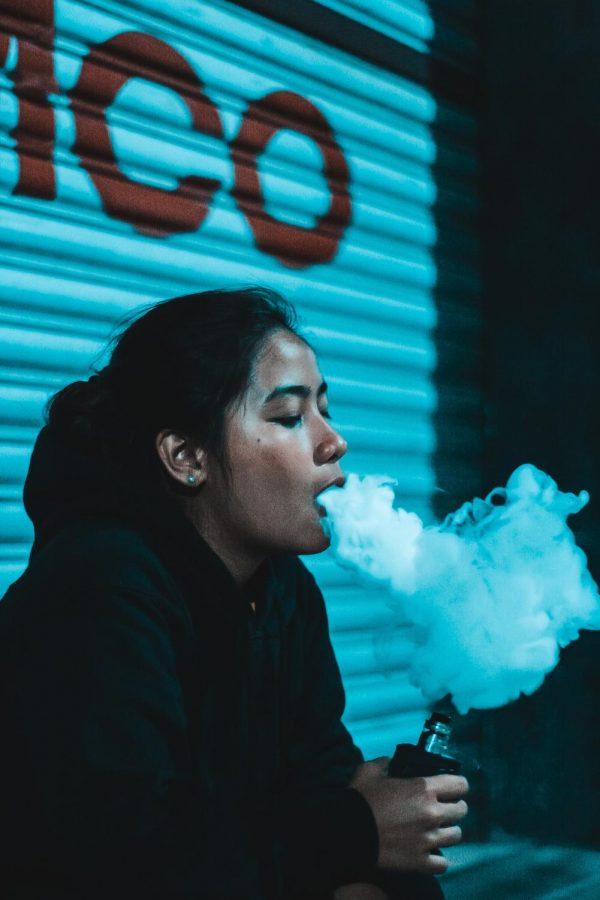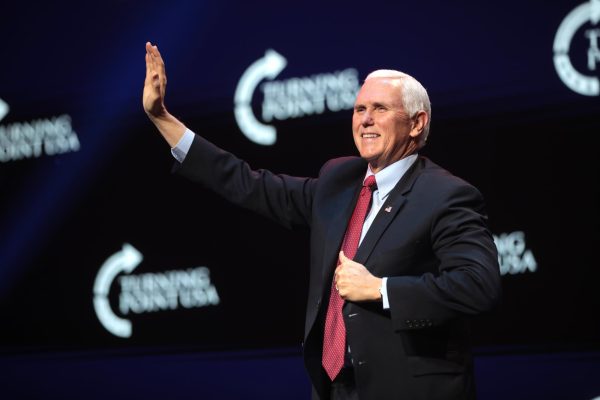OPINION: Should vaping be banned?
Vaping bans have been popping up around the nation in response to growing health concerns regarding the popular smoking alternative. Currently, there are 13 states and two U.S. territories enforcing vaping bans to some degree.
These bans come in response to a nationwide surge in lung injuries and illnesses attributed to vaping. EVALI is the official diagnosis of vaping-related lung injuries. As of Feb. 18, 2020, there has been 2,807 cases of EVALI reported to the CDC.
These health risks are very serious but vaping itself is not to blame. Banning the devices used to vape is not the appropriate solution to our nationwide problem.
The illnesses and health concerns with vaping are directly linked to e-liquids which come in the form of cartridges and oils. Typically, these products are scented and flavored with artificial ingredients to make them more palatable. They also contain nicotine, carcinogenic chemicals and other harmful ingredients.
Rather than banning vaping altogether, it would be much more beneficial to enforce stricter regulations on companies producing e-liquids. The FDA took initiative in 2016 when they issued a mandate requiring that vape products are regulated in the tobacco industry.
Although e-liquids and other vape products have recently been subject stricter regulations, there is still room to improve to make this industry safer for its users.
People choose to vape for a wide variety of reasons. Those who are trying to quit traditional smoking often transition to vaping, which is a much healthier alternative. Those suffering from chronic illness, mental health problems and stress also turn to vaping for relief.
Let’s use CBD products as an example. CBD has become a popular vaping option for people looking to reduce stress and anxiety. CBD can be safely vaporized as long as you aren’t using it in the form of an e-liquid.
High-quality, dry CBD flower can be safely vaporized without the dangerous health risks typically tied to vaping. This legal, THC-free option is a source of relief for people suffering with anxiety or depression.
Misleading labels on e-liquids often falsely claim to be safe and healthy but fail to disclose the myriad of toxic chemicals contained within the product. In fact, many e-liquid companies completely leave out ingredients on the label.
Most people are not aware of the dangers they are exposing themselves to when vaping e-liquids. Several products have been shown to produce formaldehyde when the e-liquid is overheated. This carcinogenic chemical has detrimental effects on the human body.
A study found that some e-liquids claiming to be nicotine-free contained substantial amounts of nicotine. Consumers are unknowingly exposing themselves to dangerous substances every time they vape.
E-liquid labeling is often aimed towards children and youth. Many companies promote flavors that appeal to children such as bubblegum, cotton candy and birthday cake.
This form of marketing is highly irresponsible and should be completely restricted from the marketplace. Actions such as these have permanently tarnished the reputation of the vaping industry.
Rather than placing bans on vaping, we need to gain a higher level of control over the e-liquid industry. E-liquid producers must be strongly regulated and have their products undergo comprehensive testing prior to being sold. This solution will best protect and serve the public.














Pat • Jan 11, 2021 at 10:45 pm
Do some research before writing. I know it’s a lost art in journalism but a quick Google search would tell you the federal government is already regulating e liquid to a tune of 1 million dollars a flavor. ingredients in vape juice are the same across the board VG/PG natural and artificial flavors and nicotine. further more all of those cases were due to black market marijuana pods. Also how are vape shops advertising to children when the legal limit is 21? Alcohol has cotton candy and other “flavors appealing to children” and a lot more teens die from it than any other substance it comes down to parenting not advertising there aren’t vape commercials with cotton candy and cake on tv and no vape shop sends employees out to sell to kids at the park. This isn’t a opinion it’s just a missinformed assumption.